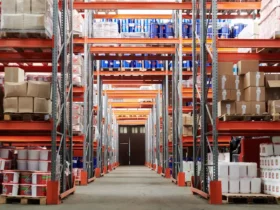The economic outlook for the UK is not a positive one, even with the recent news that recession conditions have been narrowly avoided. Over a year of high inflation has had a heavy toll on businesses of all sizes, while Brexit has had undeniable impacts on trade and profitability.
The UK is by no means a ‘dying land’, but there are strong arguments for businesses to consider a move elsewhere – whether to avail themselves of more favourable economic conditions, to tap into a new international customer base or simply to circumvent trade barriers. Moving is a complex thing though, with numerous things to consider. How might you ensure a smooth move?
Start Your Planning Early
Planning is unavoidably the most effective thing you can do to improve the transition of your business to another region. The decision is a large one that impacts every area of your business, including your staff, your logistics network, profit sources, competition and much more besides. As such, starting the planning process as far in advance as possible will give you the best possible chance at success.
This planning process should not be conducted in a vacuum, though. Receiving external advice can be crucial to getting a clearer idea of your position, and the options available to you dependent on the country you are moving to. You might also get some advice on any potential changes you might make to your business structure to better suit the move.
Assets, Audits and Tax
Your business’ move, if a physical one involving the moving of assets as well as structure and staff, will engender significant logistical difficulties. In order to know the true scope of your move, you will need to perform an audit of your business’ assets, right down to your kitchenette cutlery. With this information, you can make informed choices about what comes with you – and how best to ensure those assets are transported abroad.
Alongside these logistical considerations, tax should also be a priority though. Moving your business and its assets to a new country or jurisdiction could have profound impacts for your tax liability, particularly depending on the nature of your business and its move. There is scope for businesses, particularly sole proprietorships, to navigate a move without major tax implications – thanks to new digital-forward visa programmes like the ‘digital nomad’ visa.
Create a Spearhead Team
With the wide degree of considerations that come with such a profound move, it would be pertinent to put a team specifically in charge of the move. This team would spearhead the move, and give direct time and attention to each of its aspects.
If the move involves the opening of a new branch or headquarters in a new country, it may help to send a skeleton crew over well ahead of the move, to oversee the preparation of any physical premises – and also to get a head-start on hiring local talent with knowledge of the region and its legal practices or requirements.








